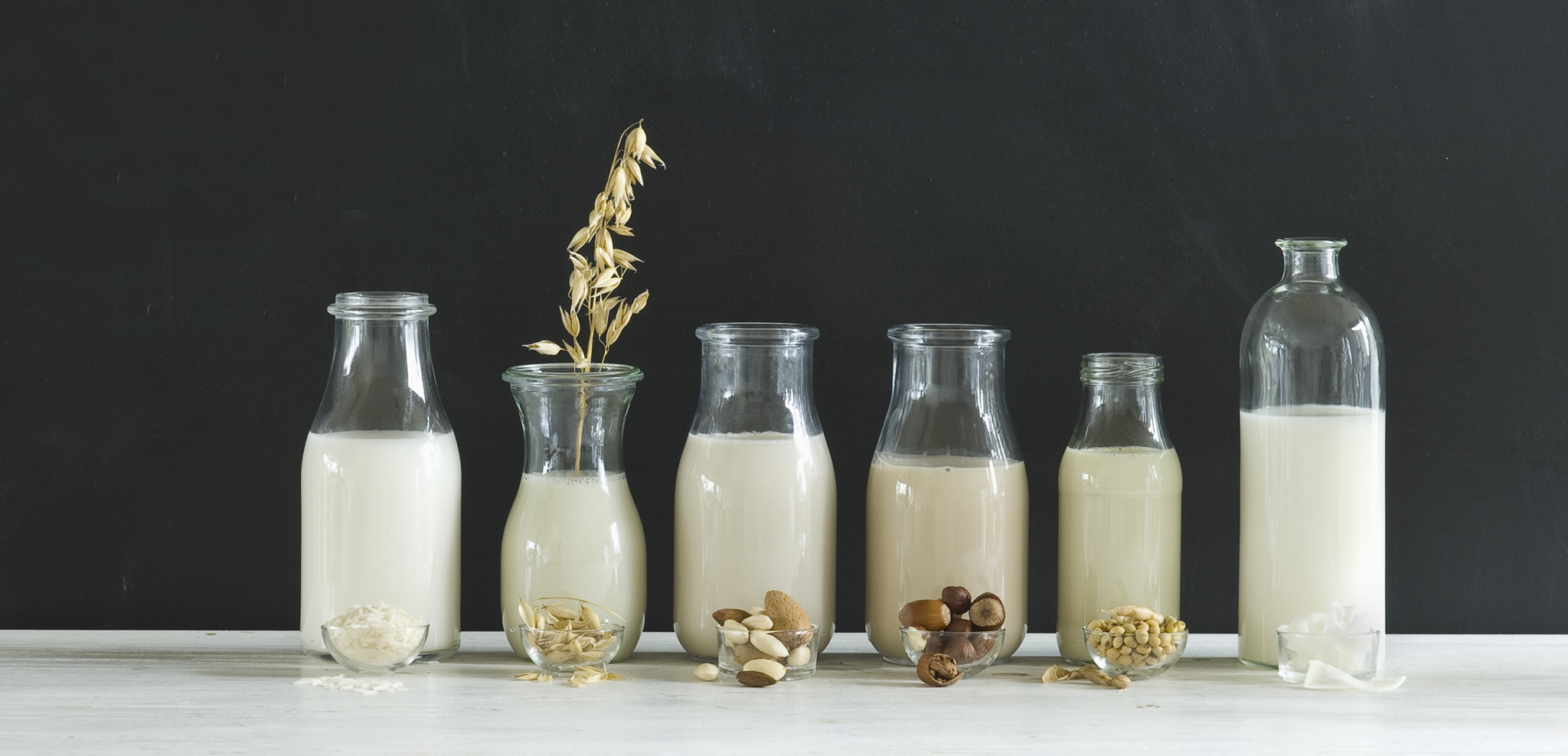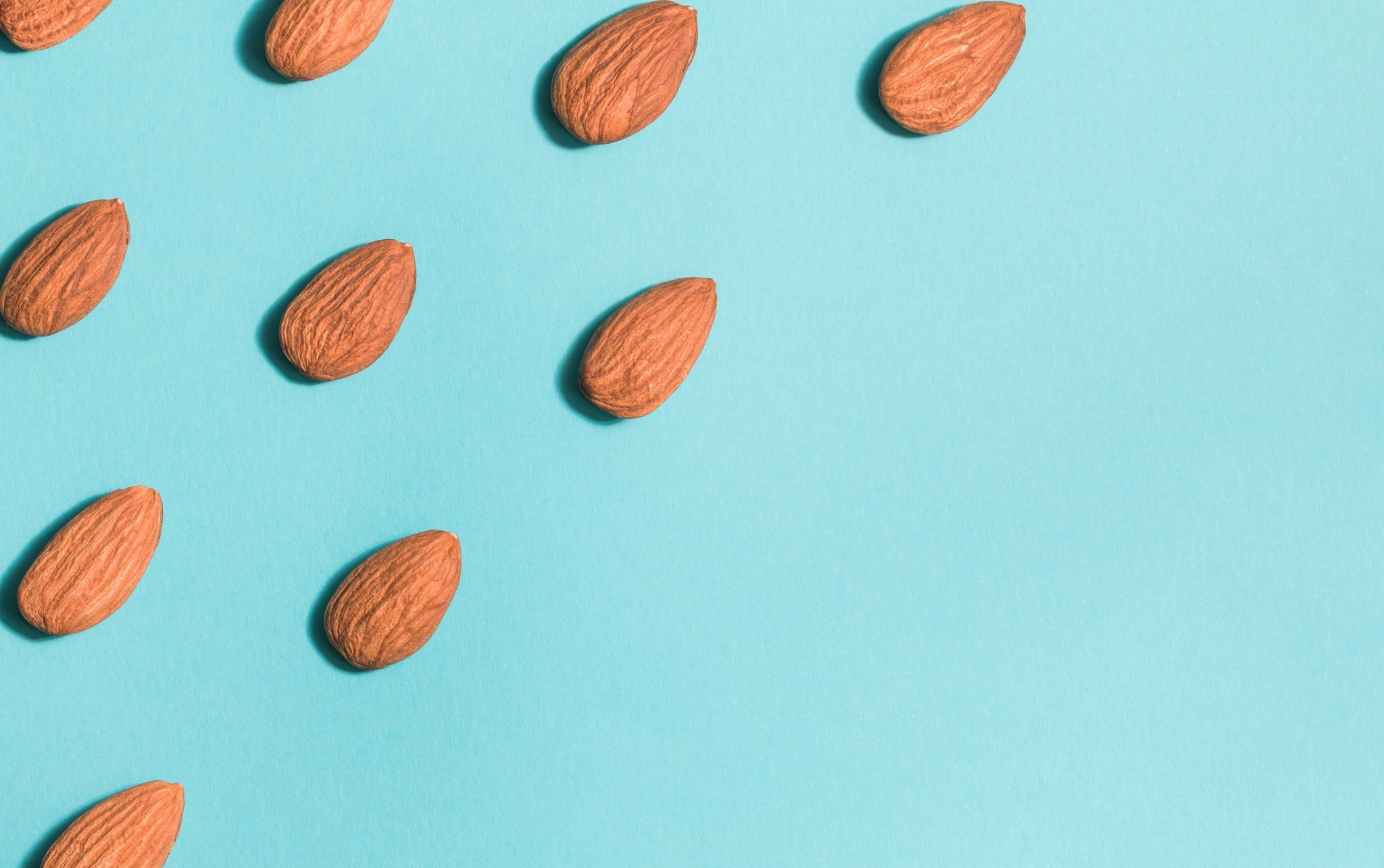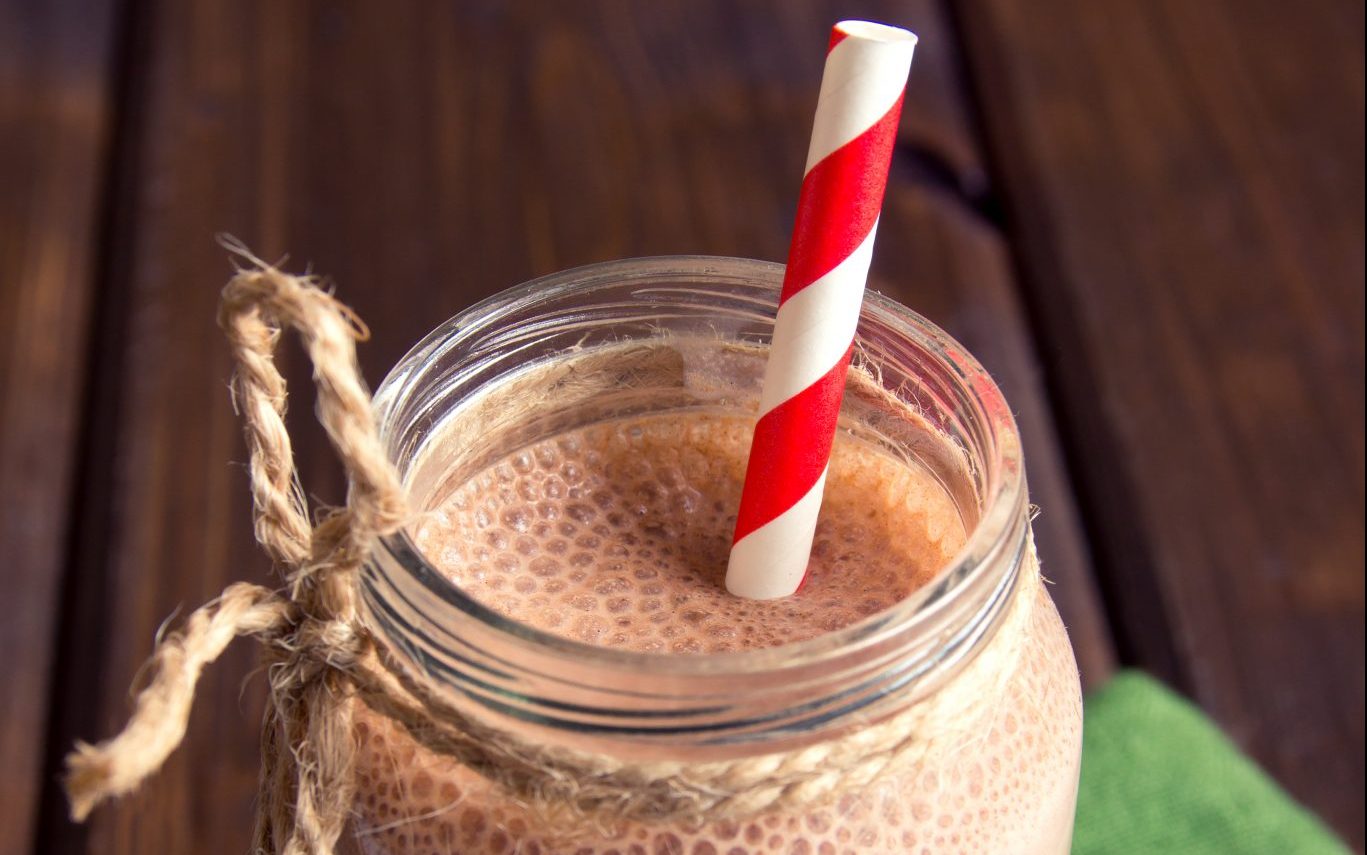Whether you are already accustomed to a plant-based diet or just starting out, allergic to dairy or following the trend, it is very hard to choose the healthiest milk alternative. Among extremely overwhelming variety that supermarkets offer nowadays, where do we begin? Here is the ultimate guide to your nondairy routes:
Decade and decades ago a milkman knocked on the doors and left bottles of fresh product in the morning. Times are changing along with lifestyle. More and more Americans are shying away from dairy. Unless it’s a 100% grass-fed – we are playing the game of “how will it affect my body?”. Most lactose products we get from stores don’t come, as some of us imagine, from those beautiful cows on a green valley, carelessly chewing long grass while enjoying their lives.
Cows on mass produced farms are fed corn and soy that they aren’t naturally accustomed to. When animals get sick due to this bad nutrition, they are injected with antibiotics that are passed into their milk and end up in our fridge. On top of that, 30 to 50 millions of Americans (adults and children) are lactose intolerant. Fortunately, today we have more choices than ever before. Stores are filled with versatile sources of vital nutrients and minerals that can fit numerous dietary needs. So, what is the healthiest milk alternative?
Soy
Soy market has mushroomed over the last few decades and is the leader among the vegetable options. If your goal is to find the best alternative to milk in terms of protein content – soy one is definitely the winner. Also, it is
- Low in saturated fat
- Heart Healthy
- Free of cholesterol
However, about 94% of soybeans in the U.S. are genetically engineered and contain high levels of cancer-causing ingredient – glyphosate. When choosing soy drink, try to stick to organic option. Plus, GMO products have poorer nutritional profile.
One more fact to consider – soybeans are high in phytic acid. This component inhibits absorption of essential minerals (calcium, iron, zinc and magnesium). However, it interferes with minerals only if consumed in large amounts – 8-12 oz a day won’t have any significant effect on absorption.
Hemp
This one is a heart-healthy alternative to milk. It’s made from the Cannabis sativa plant. Yes, that’s right, the same plant that marijuana comes from. Don’t think that you’ll get buzzed in any way – THC “drug” part of the plant is missing. Hemp drink offers creamy consistency and nutty flavor (similar to almond one). Also, if your goal is to find low sugar milk alternative, the hemp option is the leader.
- Rich in plant-based Omega-3 fatty acids – particularly important for vegetarians and vegans since fish is the main source of Omega-3s. These fatty acids keep cholesterol and blood pressure in check.
- Full of minerals, including calcium
- Contains more iron than soy or even cow’s product
- Gives a good dose of B vitamins, such as riboflavin and thiamin
- Supplies you with vitamin D and B-12
- Healthy source of magnesium
- Unlike soy, doesn’t contain complex sugars that can cause gas and bloating
Keep in mind, hemp alternative isn’t the best source of protein: 1 cup serving contains only about 2 grams of protein (compared to 7 grams in soy drink).
Almond
Known for its silky and slightly sweet flavor, “liquid almond” has been consumed since the Middle Ages and you can even make it at home. Essentially, it’s a mixture of ground almond nuts and water. While other substitutes need to be fortified with vitamins, almond one has a very rich profile on its own:
- Vitamins A, B and E and minerals (iron, potassium, phosphorus and magnesium)
- Source of fiber
- Low sugar milk alternative when unsweetened
If you are allergic to nuts, be cautious when switching to this option. Pay attention, most brands add carrageenan, a thickening emulsifying agent. This additive has been claimed to cause ulcers, inflammation and other gastrointestinal problems. When you decide which brand to choose – look for those with no emulsifiers or the ones that use sunflower lectin. Many are reluctant to pick unsweetened almond options because of the bland taste. Nevertheless, it’s often added in smoothies and oatmeal.
Try this simple glass of Pure Immunity:
Blend together
- 1-2 cups of unsweetened almond milk
- 1 cup of mixed berries
- 2 scoops of protein powder
- 1 banana
- 1tsp chia seeds
- 1tsp elderberry syrup
- 1 dropper CBD oil (prevents inflammation)
- Ice cubes
And Voilà! It’s the best start of the day. Enjoy the smoothie at home or put it in your to-go mug to sip on a way to your busy day. You are protected, loved and sounded.
Coconut
This product is made from a brew of coconut meat and water. Simple, right?
- Contains lauric acid that supports immune system.
- Great source of calcium, vitamin D
- Perfect for the Paleo diet followers
- Its creamy texture is excellent if you want to add a tropical twist to coffee, tea, oatmeal, smoothies and cream-soups.
However, this pick could become a high calorie milk alternative – most brands add sugars. Plus, coconut substitute to dairy contains high amount of saturated fats – one serving contains approximately 20% of daily value. To ensure wholesomeness and to avoid waistline problems, check the ingredients on the labels to make sure that product doesn’t contain added sweeteners and carrageenan.
Cashew
Move away, almond milk! This is another healthy nutty drink on the agenda. It’s thicker and creamier than other nut nondairy products. If you want to avoid both lactose and soy, this would be a good call:
- Fortified with calcium, vitamins A, D and B12
- Packed with magnesium – mineral essential for nerve function, heart health, and blood pressure regulation.
- Low in fat
- Doesn’t contain cholesterol
- Full of antioxidants
- Excellent for cooking due to its dairy-like texture and taste
What to consider – cashew drink has very limited amount of protein. You’ll have to pair it with high protein foods since it’s not the best source for muscle-building. Also, majority of manufacturers add sugar to their final product. So, read the labels thoroughly.
There’s no ideal choice for everyone. The best solution – don’t be afraid of trying different types. It will help to figure out which one fits your lifestyle better. After you discover the alternative that meets your nutrient needs and health condition, that’s when you find your personal healthiest milk substitute.







